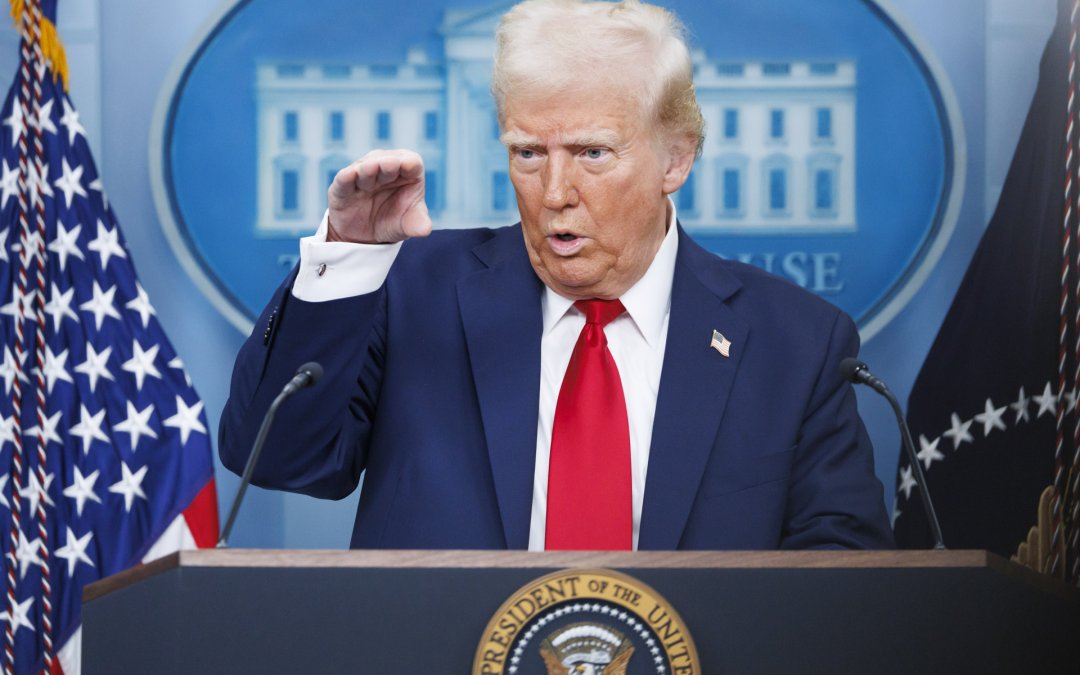WASHINGTON — Tariff uncertainty and delays have become the norm under the Trump administration.
President Donald Trump announced a 100% import tax on pharmaceutical drugs Sept. 25. He also proposed levies on select kitchen cabinets, upholstered furniture and trucks that same day.
The tariffs were set to take effect on Wednesday, but the White House released a memo on Tuesday pushing the implementation date to Oct. 14.
Such a postponement came as no surprise to Tinglong Dai, a professor at the Johns Hopkins University Carey Business School. Dai said he’d be more shocked if the tariffs were implemented on time.
“Trump Always Chickens Out — it’s not just a joke,” he said, referring to TACO, an acronym associated with previous tariff delays.
Although Trump aims to increase domestic manufacturing through these levies, Dai said the proposals are often impractical for producers, causing delays in implementation. Building new factories, for instance, comes at the cost of disrupting established supply chains.
It’s also unclear to which firms some tariffs apply, as evident in Pfizer’s drug pricing deal with Trump on Tuesday.
The agreement, a three-year exemption from the proposed 100% tariffs on pharmaceutical drugs in exchange for more investment in U.S. manufacturing, leaves the door open for other pharmaceutical companies to avoid import taxes.
“In general, the policies are not fully thought out in terms of the details of how they’ll be implemented,” American University economics department chair Kara Reynolds said.
And it’s consumers who bear the brunt of changing price levels that arise from tariffs, House Democratic Caucus Chair Pete Aguilar (D-Calif.) said in a press conference Wednesday.
“It’s terrible for the markets, but more importantly, it hurts people,” Aguilar said.
Former World Trade Organization chief economist Robert Koopman said firms tend to invest less in volatile environments. And decreased investment worsens consumer confidence.
So while tariffs do not cause recessions, they often contribute to less consumer spending, Koopman said.
“That uncertainty is probably worse than the tariffs themselves,” he said.
There’s also uncertainty in the reasons behind certain tariffs. The Trump Administration justifies most of them under Section 232 of the 1962 Trade Expansion Act, a law that allows restrictions on imports threatening national security.
Recent proposals push the limits of that authority, Brookings senior fellow Elena Patel said.
“It’s a stretch of the imagination to understand how kitchen cabinets and bathroom vanities affect national security,” said Patel, who also co-directs the Urban-Brookings Tax Policy Center.
Dai said tariff announcements on seemingly arbitrary goods brands the U.S. as a “reckless” country that does not consider economic policy consequences.
Trade partners will turn to different markets instead, he said. This isolates the U.S. and undermines Trump’s intent to turn the nation into a manufacturing hub.
“Overnight, we have really lost that brand, being an economic power,” Dai said.
But he sees a silver lining in Trump’s lengthening list of tariffs despite looming economic consequences.
“As he keeps surprising consumers and also manufacturers, I think his ability to surprise the market is going to be less and less because we have seen this before,” Dai said.

